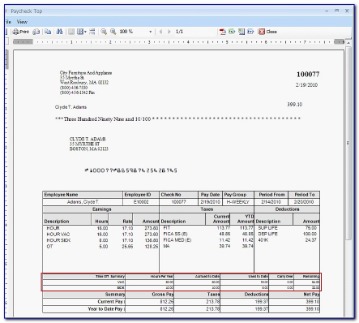Content

If both spouses have self-employment income, the deduction for self-employed health or dental insurance must be allocated between the spouses in the ratio of each spouse’s self-employment income to the total self-employment income of both spouses. For taxpayers who are not self-employed, if health or dental insurance premiums are paid directly by one spouse, that spouse will claim the entire deduction. If both spouses paid through a joint checking account, the deduction will be allocated between the spouses in the ratio of each spouse’s net income to the total net income of both spouses. For this net income calculation, do not include line 18, the health or dental insurance deduction. You may also reap some tax benefits if you offer a Health Savings Account with your group plan. The contributions you and your employees make to these accounts are typically tax deductible up to annual limits, saving you money while you save for potential future health expenses.
Are Health Insurance Premiums Tax payers who itemize may be able to use this deduction to the extent that their total medical and dental expenses, including health insurance premiums, exceed 7.5% of adjusted gross income. Self-employed people may also be able to deduct premiums for dental, health and long-term care insurance for themselves, spouses and dependents. Premiums may also qualify for special tax treatment for those who get coverage from the Health Insurance Marketplace or COBRA continuation insurance. One of the most-discussed issues during the recent health care reform debate was the proposal to cap the tax exclusion for employer-sponsored health insurance.
Family Caregiving
For instance, if you obtain health insurance through the Health Insurance Marketplace you may be able to get a tax credit for the premiums you pay if you meet income requirements. Taxpayers who qualify for the Premium Tax Credit can even get a refund as an advance against taxes before filing their returns. Payments for insurance premiums you paid for policies that cover medical care or for a qualified long-term care insurance policy covering qualified long-term care services. However, if you’re an employee, don’t include in medical expenses the portion of your premiums treated as paid by your employer. Employer-sponsored premiums paid under a premium conversion plan, cafeteria plan, or any other medical and dental expenses paid by the plan aren’t deductible unless the premiums are included in box 1 of your Form W-2, Wage and Tax Statement. For example, if you’re a federal employee participating in the premium conversion plan of the Federal Employee Health Benefits program, you may not include the premiums paid for the policy as a medical expense. In his primary analysis, the author uses a microsimulation model of health insurance to simulate the effect of repealing or capping the tax exclusion.
The benchmark plan available to John is priced at $5,000; John would be eligible for a credit amount of $4,456 ($5,000 minus $544). You also can’t deduct any general health and well-being expenses, such as toothpaste, gym dues, vitamins, or diet food. However, you can include the cost of a weight-loss program if it’s used to treat a specific disease diagnosed by a physician, such as hypertension or heart disease. Medicare Part Dprescription plans, including the high-income surcharge. The Tax Cuts and Jobs Act of 2017 increased the standard deduction significantly, and the amounts rise annually based on inflation.
Group Health Insurance Tax Benefits For Employers:
The federal tax system provides preferential treatment for health insurance that people buy through an employer. That treatment applies to payments and contributions made both by employers and by employees. Unlike cash compensation, employers’ payments for their employees’ health insurance premiums are excluded from income and payroll taxes.
- If you don’t have any health insurance at all, you may face a penalty come tax time.
- You can then transfer the total of Part 2 of Schedule 1 to your tax return.
- If you are enrolled in an employee-sponsored plan, your premiums are likely already tax-advantaged.
- Plus, small businesses have smaller profit margins and can’t afford to keep hiring underperforming staff.
- The IRS allows you to deduct any medical or dental expenses for you, your spouse, or your dependents.
- Over-the-counter medications and cosmetic surgery are two common examples.
- You’ll start receiving the latest news, benefits, events, and programs related to AARP’s mission to empower people to choose how they live as they age.
When you had https://intuit-payroll.org/-sponsored health insurance, your share of the premium was likely payroll deducted on a pre-tax basis, and thus your W2 reflected that fact. You did not have to deduct the premiums when you filed your taxes, because they were not included in the taxable income reported to you on your W2.


